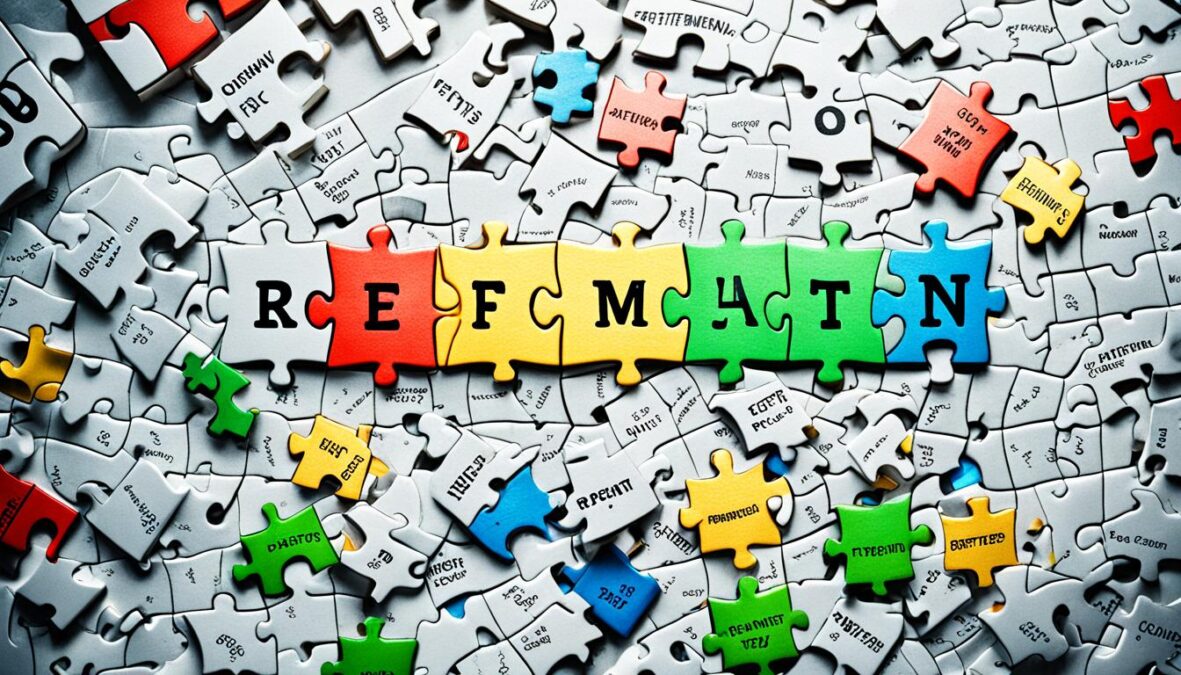Feeling like your money is always slipping away? You’re not the only one. Many find managing money tough. But, the good news is, you can control your finances with the right steps. You can plan for a bright financial future.
First, understand your financial goals and what’s important to you. A financial advisor can craft a plan tailored to your dreams.1 It’s crucial to know your own money goals before meeting an advisor.1 Think about what you value most. This helps focus your budget and savings on what really matters to you.
Key Takeaways
- Financial advisor assistance can help set up a financial plan for your wealth management needs and goals.
- Determining your financial priorities is essential for effective budgeting and aligning with your financial planning.
- Tracking your monthly income after taxes is crucial for managing your finances effectively.
- Analyzing one month’s worth of expenses provides valuable insights into your spending habits.
- Categorizing your expenses into needs, wants, savings/debt, or specific categories aids in understanding where your money is being spent.
Determine Your Financial Priorities
Before setting a budget, figure out what matters most to you financially. Match your money goals with your values. Determine your biggest financial goal now. According to expert Patrice Washington, focus your spending on what’s most important to you. This could be things like traveling the world or staying healthy.2 After finding your top priority, you can lower spending in other areas. This lets you save more for your main goal. It might be paying off debts, starting an emergency fund, or investing for later.
Align Your Money Goals with Your Personal Values
Managing your finance well means making your money goals match your core beliefs. Think about what really counts for you. Is it smart financial planning, setting clear goals, or spending in line with what you value most? By linking your money goals with what’s important personally, you’ll have a clear path and more motivation on your money journey.
Define Your Current Top Priority
With your core values clear, pick your top money goal right now. Is it getting rid of high-interest debt, starting an emergency fundfund>, or saving and investing more for later?23 Once you know what’s most critical, focus your budget on achieving it. This approach leads to real progress.
Keep in mind, what you need most financially can change as life changes. Stay open to adjusting your personal financefinance> plans. Revisit your goals often. Being flexible and true to your values is key in managing money well.
Assess Your Income and Expenses
To understand your money situation well, look at both what you earn and spend. This step is vital for making a budget that meets your needs.
Calculate Your Monthly Income
Figure out your monthly earnings after taxes, including any extra work you do.4 Think about only what you bring home, and don’t forget things like social security or dividends.5
Track Your Monthly Expenses
Then, watch where your money goes. Use credit card statements, bills, and other records.5 Sort your spendings into must-haves, nice-to-haves, and money put aside or owed. This helps see what you could spend less on.5
Categorize Your Spending Habits
Divide your net pay this way: 50% for needs, 30% for wants, and 20% for savings or debts.4 Sorting costs as unchangeable or changeable lets you see how flexible you can be with your budget. It helps in reaching money goals and adapting your plan.5
Doing this detailed money check helps you know your spending style and set a budget that fits well with your life.5 By accurately looking at what you make and spend, you gain control over your finances. This way, you can smartly manage your money and achieve your goals.
Create a Budget Plan
Once you know what you earn and spend, make a budget plan. This plan should match how you spend with your key money goal. This goal might be paying debts, saving for emergencies, or aiming for something special.6 Look at your net income, not your total salary. This helps you see the real money you have, stopping you from thinking you can spend more than you should.6
Allocate Funds Based on Your Priority
It’s important to decide on your short and long-term money goals when you budget.6 Setting up an emergency fund could be a short-term goal. Saving for retirement or education would be long-term.6 Spend your money on what matters most. This way, you move closer to your financial goals.
Choose a Budgeting Method
There are many ways to budget, from using a spreadsheet to a budgeting app.7 The 50/30/20 method is one option. It suggests you spend 50% on needs, 30% on wants, and save 20%.7 Envelope and pay-yourself-first budgeting are other methods.7 Budgeting apps can also help by tracking your spending. Some are free, others you have to pay for.7
Visually Represent Your Goals
Patrice Washington, a financial expert, advises using visuals to stay motivated. Putting up pictures of where you want to go on vacation can really help. This keeps you focused on what’s important, making it easier to follow your budget for a month. You’ll see how much it pays off.6
Build an Emergency Fund
It’s key to work on an emergency fund no matter your financial goals.8 Life can throw us curveballs, and having money set aside can smooth things over. This could be for sudden job losses, health problems, or if your car breaks down. This helps you not have to use credit and get into debt.8 Even if you can’t save a lot at first, every bit helps calm your worries.9You can start by putting away any extra money, like from side jobs or birthday gifts, or part of your paycheck each time.8
9 Experts say you should aim to save what you usually spend in three to six months, depending on your life situation.9 You can start with small, regular savings to get there, such as $100 each month.9 Remember, only use this money for true emergencies, like when your home needs repairs, you lose your job, or you face big medical bills.9
9 It’s important to fill your emergency fund again if you take out money. That’s because unexpected costs can keep coming up.9 You’re advised to be careful with money market funds as they can change in value. They might not always be as stable as typical savings options.9
10 A study by Bankrate showed that only 44% of Americans could pay for an emergency that cost $1,000 or more ourselves.10 More than half don’t have three months’ worth of savings for emergencies.10 While 57% are confident in their savings, 43% feel unsure.10 Two-thirds worry about affording their expenses for a whole month if they were to lose their job.10
| Emergency Fund Metrics | Percentage |
|---|---|
| Americans who could cover a $1,000 emergency from savings | 44%10 |
| People with less than 3 months’ worth of emergency savings | 53%10 |
| People comfortable with their emergency savings | 57%10 |
| Americans worried about covering a month’s expenses if unemployed | 66%10 |
8 Using automatic payments is a simple way to save each month.8 Tax season is also a good time to save, using your refund.8 This method works for everyone, but especially for those whose pay is predictable.8 Keep your emergency fund in a place that’s hard to access, so you’re less tempted to use it for non-urgent needs.8 With an emergency fund, you can steer clear of credit card debt in tough times.8
Start Saving and Investing Early
It’s best to start saving and investing early. Even small amounts can turn into big savings thanks to compound interest.11 For example, if you invest $1,000 at age 30 with a 7% annual return, it might grow to over $10,000 by age 65. But if you start at 35, that same investment might only reach about $7,600.11 This shows starting five years earlier makes a huge difference. It’s like getting a 5-7% boost in annual returns all your life.
Take Advantage of Employer Benefits
Always make the most of work offered retirement plans, like 401(k) matches.12 These plans provide tax benefits and let your money grow tax-deferred. They are also about picking the right investments based on your risk and retirement needs. The major plus of a 401(k) is its tax breaks and growth being deferred from taxes.12 Starting early helps you get more returns and build a bigger retirement fund.
Refinance or Consolidate Debt
Finding chances to lower your debt’s interest through refinancing or consolidating is key. It can help you pay off what you owe quicker and build a solid financial future.12 Saving for short-term goals is smart. Use low-risk options like savings or CDs. They offer small return but are safe.12 And, have an emergency fund that can cover living expenses for a few months before you start investing.
Stick to Your Finance System
Once you find a money management system that fits, stick with it. Dave Ramsey, a money expert, warns not doing so may lead to trouble.13 Try not to jump to new financial apps or plans. Keep at it for steady financial safety.13 If your system is working well, there’s no need to change it.
It’s important to stay disciplined in managing your finances.13 Stick to what works for you, be it a basic budget or a special app. Avoid the urge to switch up often.13 Keeping your money management steady helps you reach your money goals.
Success in handling personal finance isn’t about fancy trends or tools. It’s about the discipline to use your best plan consistently.13 By sticking to your budgeting and savings system, you gain the security and confidence you need. This helps you smoothly go through your financial path.
Model Healthy Money Management for Children
As grown-ups, how we manage our finance and money management greatly impacts kids. Showing good money skills is key. It’s also vital to directly teach children about family finance.14
Share Money Stories in Everyday Life
Talk about using money in daily tasks. Explain how we make money and why saving is important. This helps kids learn the value of hard work and smart financial education.15
Discuss How Adults Earn Money
Experts say it’s crucial kids know money must be earned. Letting them make their own money teaches the value of effort. This shows the link between work and reward.15
Build Basic Budgets Together
Create a simple budget with kids. This teaches saving, wise spending, and deciding what’s most important. Making it fun helps them remember and understand.15
Start talking about money early and keep it up. This way, you help create good habits around money management for life.1415
Top 50 Money Tips
Financial Basics
Starting on a solid financial path is crucial. Make a financial calendar. Put in reminders for paying bills and adding to savings.16 Keep track of your net worth to see how you’re doing financially.16 Also, look for loans and savings accounts with high-interest rates. This can cut your borrowing costs.16
Budgeting Like a Pro
Budgeting is the heart of managing your money. Create a budget that fits your goals. Aim to spend about 30% of your income on things you don’t need.16 Try the 50/30/20 rule to budget more effectively. Making a financial vision board can also keep you inspired to follow your budget.16
Getting Money Motivated
Staying motivated is crucial for reaching your financial goals. Set clear goals with specific numbers and dates.16 Repeat a positive spending phrase, like “I invest in what’s important.” This can help you buy things wisely.16 Don’t forget to negotiate your salary when starting a new job. This can boost how much you earn.16
Amping Up Earning Potential
Making more money can really help your finances. Look for freelance work or side jobs that you enjoy. Taking care to know about unemployment benefits can help if you lose your job.16
Keeping Debt at Bay
Managing debt well is important for financial peace. Start with small debts first. This can give you good momentum for paying off larger ones.16 For student loans, choose federal loans if you can. They’re often a better choice than private loans.16 When getting a mortgage, aim to keep your monthly payments under 28% of your monthly income.16
Shopping Smart
Being mindful when you shop can really help your bank account. Think about cost per use for items. Prioritize experiences over material goods.16 This mindset will guide you to make smarter spending choices.
Saving Right for Retirement
Planning for retirement early pays off thanks to compound growth.16 Look into retirement plans like 401(k)s at work for tax benefits and maybe even matching contributions from your employer.
Conclusion
Learning how to manage your money well is key to financial safety and achieving your dreams. Start by figuring out what’s most important to you financially. Look at how much money you make and how you spend it. Then, make a budget that fits you.
Don’t forget to set aside some money for unexpected costs, like an emergency fund. Start saving and investing as soon as you can. You’ll see that taking charge of your finances early on leads to big wins later.17
Stick to the plan you make for your money. Show kids how to be smart with money. And always check out the best money tips to help you along the way. Keeping your goals in mind and working hard to be money smart will get you where you want to be.17
Read up on the Finance Watch report for more info on how essential basic financial services are and the struggles some people face to get them.17
FAQ
What is the importance of determining financial priorities?
Finding your financial must-dos is key to a solid budget and savings plan. It links your money goals to what you value most. This ensures your spending fits with your big dreams, whether it’s exploring the world or keeping healthy.
How do I assess my income and expenses?
First, list your monthly earnings after taxes, and any extra income from side jobs. Next, jot down your monthly spendings from your credit card bills and financial papers. Organize your costs into needs, wants, and savings/debt. This helps you see where you can save more.
What are some effective budgeting methods?
There are many ways to budget, from using a simple sheet to high-tech apps. Financial guru Patrice Washington suggests putting up images of your goals. This could be your dream holiday. It keeps you focused.
Why is it important to build an emergency fund?
An emergency fund shields you from sudden financial hits like losing your job or unexpected medical bills. Ideally, aim for 3-6 months of living expenses for your fund. But any amount saved gives peace of mind.
How can I start saving and investing early?
Start saving and investing as soon as you can. Even small savings can grow big over time with compound interest. Don’t forget to use any workplace savings plans that match your contributions. Refinancing debt can also save you money, helping you pay off your loans quicker.
Why is it important to stick to my finance system?
Sticking with a financial plan is crucial for long-term security. Dave Ramsey notes, “Either you control your money, or the lack of it will control you.” Avoid jumping from one money-saving trend to the next. If your current plan helps meet goals and keeps you financially stable, stick with it.
How can I model healthy money management for children?
Your financial habits strongly influence the young ones. Share stories of managing money in everyday life. Discuss how folks earn money and bills get paid. Working on a budget together as a family also teaches children good money habits early on. Regular talks about money will impact their future behavior.
Source Links
- https://smartasset.com/checking-account/top-10-money-management-tips
- https://www.investopedia.com/articles/personal-finance/100516/setting-financial-goals/
- https://www.nerdwallet.com/article/finance/how-to-set-financial-goals
- https://www.nerdwallet.com/article/finance/how-to-budget
- https://www.incharge.org/financial-literacy/budgeting-saving/how-to-make-a-budget/
- https://bettermoneyhabits.bankofamerica.com/en/saving-budgeting/creating-a-budget
- https://www.nerdwallet.com/article/finance/budget-worksheet
- https://www.consumerfinance.gov/an-essential-guide-to-building-an-emergency-fund/
- https://www.morganstanley.com/articles/how-to-build-an-emergency-fund
- https://www.bankrate.com/banking/savings/starting-an-emergency-fund/
- https://mai.capital/resources/why-investing-early-is-the-key-to-achieving-financial-goals/
- https://www.investopedia.com/articles/investing/022516/saving-vs-investing-understanding-key-differences.asp
- https://www.investopedia.com/terms/f/financial-system.asp
- https://news.byu.edu/intellect/kids-who-learn-money-management-from-parents-do-better-financially-relationally-according-to-new-byu-research
- https://www.forbes.com/sites/enochomololu/2023/07/18/6-ways-to-instill-healthy-money-management-habits-in-your-kids
- https://www.themuse.com/advice/50-personal-finance-tips-that-will-change-the-way-you-think-about-money
- https://www.finance-watch.org/wp-content/uploads/2020/07/Conclusions-recos_Basic-Financial-Services_Finance-Watch-report.pdf



